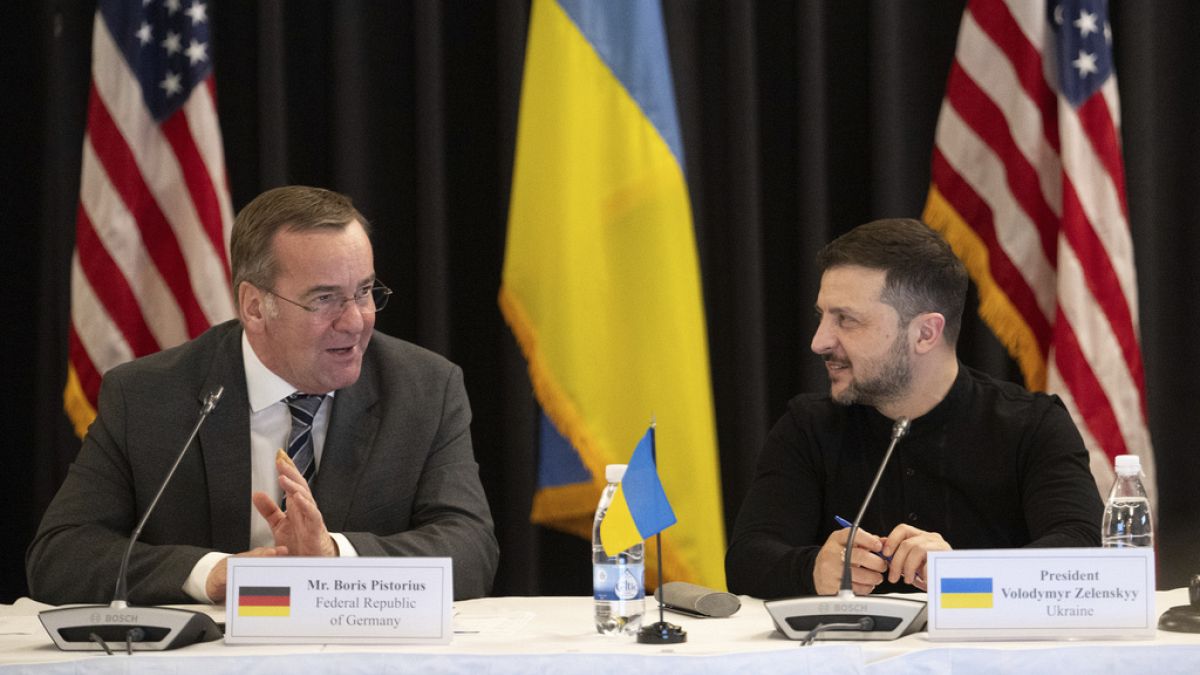Education
Opinion | What College Students Need Is a Taste of the Monk’s Life

“On college campuses, these students think they’re all being individuals, going out and being wild,” he said. “But they’re in a playpen. I tell them, ‘You know you’ll be protected by campus police and lawyers. You have this entire apparatus set up for you. You think you’re being an individual, but look at your four friends: They all look exactly like you and sound like you. We exist in these very strict structures we like to pretend don’t exist.’” (It’s worth mentioning that Dr. McDaniel describes his own politics as “philosophical anarchist.”) His course offers a chance to temporarily exchange those unconscious structures for a set of deliberate, countercultural ones.
No one understands discipline better than the Benedictines, members of the monastic order who follow the rule written by St. Benedict in the sixth century. Undergraduates at Belmont Abbey College outside of Charlotte, N.C., share their quadrangles, sidewalks — even their chess clubs — with Benedictine monks who live in an abbey in the middle of campus. “For the last 1,500 years, Benedictines have had to deal with technology,” Placid Solari, the abbot there, told me. “For us, the question is, how do you use the tool so it supports and enhances your purpose or mission, and you don’t get owned by it.”
Mental distraction was a struggle even for the ancient ascetics who didn’t have Snapchat. When the mind wanders and a monk wants “to bind it fast with the firmest purpose of heart, as if with chains, while we are making the attempt it slips away from the inmost recesses of the heart swifter than a snake,” John Cassian, a fourth-century monk, wrote. Many monasteries don’t totally reject the latest technology, but they are mindful of how they use it. Abbot Placid told me that for novices at his monastery, “part of the formation is discipline to learn how to control technology use.” After this initial time of limited phone and TV “to wean them away from overdependence on technology and its stimulation,” they get more access and mostly make their own choices.
Evan Lutz graduated this May from Belmont Abbey with a major in theology. He stressed the special Catholic context of Belmont’s resident monks; if you experiment with monastic practices without investigating the whole worldview, it can become a shallow kind of mindfulness tourism. The monks at Belmont Abbey do more than model contemplation and focus. Their presence compels even non-Christians on campus to think seriously about vocation and the meaning of life. “Either what the monks are doing is valuable, and based on something true, or it’s completely ridiculous,” Mr. Lutz said. “In both cases, there’s something striking there, and it asks people a question.”
Pondering ultimate questions and cultivating cognitive endurance should not be luxury goods. David Peña-Guzmán, who teaches philosophy at San Francisco State University, read about Dr. McDaniel’s Existential Despair course and decided he wanted to create a similar one. He called it The Reading Experiment. A small group of humanities majors gathered once every two weeks for five and a half hours in a seminar room equipped with couches and a big round table. They read authors ranging from Jean-Paul Sartre to Frantz Fanon. “At the beginning of every class I’d ask students to turn off their phones and put them in ‘the Basket of Despair,’ which was a plastic bag,” he told me. “I had an extended chat with them about accessibility. The point is not to take away the phone for its own sake, but to take away our primary sources of distraction. Students could keep the phone if they needed it. But all of them chose to part with their phones.”

Education
Four Fraternity Members Charged After a Pledge Is Set on Fire

Four fraternity members at San Diego State University are facing felony charges after a pledge was set on fire during a skit at a party last year, leaving him hospitalized for weeks with third-degree burns, prosecutors said Monday.
The fire happened on Feb. 17, 2024, when the Phi Kappa Psi fraternity held a large party at its house, despite being on probation, court documents show. While under probation, the fraternity was required to “demonstrate exemplary compliance with university policies,” according to the college’s guidelines.
Instead, prosecutors said, the fraternity members planned a skit during which a pledge would be set on fire.
After drinking alcohol in the presence of the fraternity president, Caden Cooper, 22, the three younger men — Christopher Serrano, 20, and Lars Larsen, 19, both pledges, and Lucas Cowling, 20 — then performed the skit, prosecutors said.
Mr. Larsen was set on fire and wounded, prosecutors said, forcing him to spend weeks in the hospital for treatment of third-degree burns covering 16 percent of his body, mostly on his legs.
The charges against Mr. Cooper, Mr. Cowling and Mr. Serrano include recklessly causing a fire with great bodily injury; conspiracy to commit an act injurious to the public; and violating the social host ordinance. If convicted of all the charges, they would face a sentence of probation up to seven years, two months in prison.
Mr. Larsen himself was charged. The San Diego County District Attorney’s office said that he, as well as Mr. Cooper and Mr. Cowling, also tried to lie to investigators in the case, deleted evidence on social media, and told other fraternity members to destroy evidence and not speak to anyone about what happened at the party.
All four men have pleaded not guilty.
Lawyers representing Mr. Cooper and Mr. Cowling did not immediately respond to messages requesting comment on Tuesday. Contact information for lawyers for Mr. Serrano and Mr. Larsen was not immediately available.
The four students were released on Monday, but the court ordered them not to participate in any fraternity parties, not to participate in any recruitment events for the fraternity, and to obey all laws, including those related to alcohol consumption.
The university said Tuesday that it would begin its own administrative investigation into the conduct of the students and the fraternity, now that the police investigation was complete.
After it confirmed the details, the dean of students office immediately put the Phi Kappa Psi chapter on interim suspension, which remains in effect, college officials confirmed on Tuesday.
Additional action was taken, but the office said it could not reveal specifics because of student privacy laws.
“The university prioritizes the health and safety of our campus community,” college officials said in a statement, “and has high expectations for how all members of the university community, including students, behave in the interest of individual and community safety and well-being.”
At least half a dozen fraternities at San Diego State University have been put on probation in the last two years, officials said.
Education
Video: Several Killed in Wisconsin School Shooting, Including Juvenile Suspect

new video loaded: Several Killed in Wisconsin School Shooting, Including Juvenile Suspect
transcript
transcript
Several Killed in Wisconsin School Shooting, Including Juvenile Suspect
The police responded to a shooting at a private Christian school in Madison, Wis., on Monday.
-
Around 10:57 a.m., our officers were responding to a call of an active shooter at the Abundant Life Christian School here in Madison. When officers arrived, they found multiple victims suffering from gunshot wounds. Officers located a juvenile who they believe was responsible for this deceased in the building. I’m feeling a little dismayed now, so close to Christmas. Every child, every person in that building is a victim and will be a victim forever. These types of trauma don’t just go away.
Recent episodes in Guns & Gun Violence
Education
Video: Biden Apologizes for U.S. Mistreatment of Native American Children

new video loaded: Biden Apologizes for U.S. Mistreatment of Native American Children
transcript
transcript
Biden Apologizes for U.S. Mistreatment of Native American Children
President Biden offered a formal apology on Friday on behalf of the U.S. government for the abuse of Native American children from the early 1800s to the late 1960s.
-
The Federal government has never, never formally apologized for what happened until today. I formally apologize. It’s long, long, long overdue. Quite frankly, there’s no excuse that this apology took 50 years to make. I know no apology can or will make up for what was lost during the darkness of the federal boarding school policy. But today, we’re finally moving forward into the light.
Recent episodes in Politics
-

 Business1 week ago
Business1 week agoThese are the top 7 issues facing the struggling restaurant industry in 2025
-

 Culture1 week ago
Culture1 week agoThe 25 worst losses in college football history, including Baylor’s 2024 entry at Colorado
-

 Sports1 week ago
Sports1 week agoThe top out-of-contract players available as free transfers: Kimmich, De Bruyne, Van Dijk…
-

 Politics1 week ago
Politics1 week agoNew Orleans attacker had 'remote detonator' for explosives in French Quarter, Biden says
-

 Politics7 days ago
Politics7 days agoCarter's judicial picks reshaped the federal bench across the country
-

 Politics5 days ago
Politics5 days agoWho Are the Recipients of the Presidential Medal of Freedom?
-

 Health4 days ago
Health4 days agoOzempic ‘microdosing’ is the new weight-loss trend: Should you try it?
-

 World1 week ago
World1 week agoIvory Coast says French troops to leave country after decades












